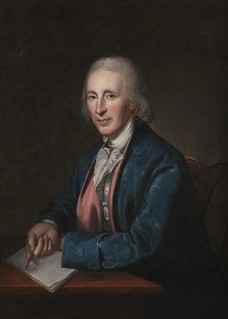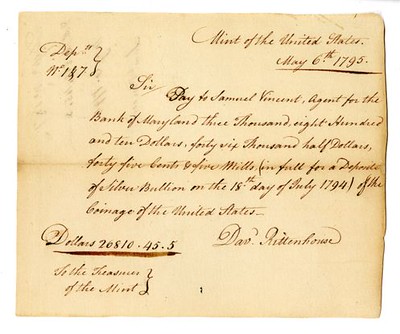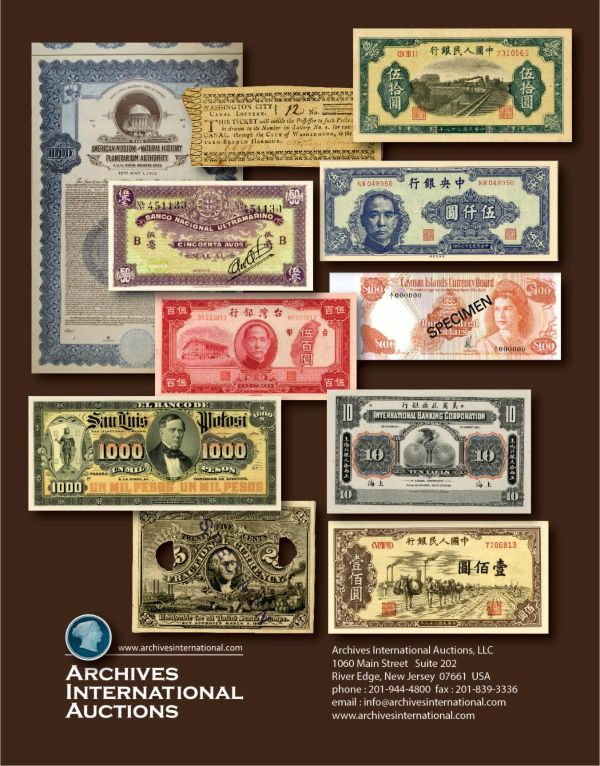
PREV ARTICLE
NEXT ARTICLE
FULL ISSUE
PREV FULL ISSUE
V25 2022 INDEX E-SYLUM ARCHIVE DAVID RITTENHOUSE PAPERS DIGITIZEDRobert Hoge alerted me to an announcement from the American Philosophical Society that they've recently digitized some papers of David Rittenhouse, the first Director of the U.S. Mint. Thanks! -Editor
The David Rittenhouse papers cover from 1774 to 1932. The collection consists of 61 items and spans 0.25 linear feet. The items from the 20th century are memorial materials commemorating various members of the Rittenhouse, Abbot, and Sergeant families. A majority of the collection consists of correspondence, mainly between Rittenhouse and his family members, but also correspondence between Rittenhouse and various politicians and men of science. Also included are receipts, broadsides, and two genealogies: the Rittenhouse family's, and the family of Rittenhouse's son-in-law, Jonathan Dickinson Sergeant. The bulk of the collection was acquired in 1970, with one additional letter purchased in 2008. The collection contains mainly correspondence but also interesting material like Rittenhouse's Astronomical Calculations and a Rittenhouse Family genealogy. David Rittenhouse (1732-1796) was one of the most prominent 18th-century American scientists. A skilled instrument maker, Rittenhouse was an astronomer and, among many accomplishments, played a major role in recording the 1769 Transit of Venus. Rittenhouse also conducted important survey work for the state of Pennsylvania, establishing the state's western border and overseeing the completion of the Mason-Dixon survey.
In addition to his scientific endeavors, Rittenhouse's commitment to American independence places him among the founding fathers. Subordinating his scientific interests for the greater good of Pennsylvania during the American Revolution, Rittenhouse served as a member of both the Pennsylvania Assembly and the Pennsylvania Constitutional Convention. He held powerful positions on the Pennsylvania Council of Safety and the subsequent Committee on Safety. At President George Washington's behest, Rittenhouse also served as the United States Mint's first director. Rittenhouse was elected to the American Philosophical Society in 1768 and played a major role in putting the Society on the proverbial
To read the complete article, see:
To access the Rittenhouse papers online, see:
Wayne Homren, Editor The Numismatic Bibliomania Society is a non-profit organization promoting numismatic literature. See our web site at coinbooks.org. To submit items for publication in The E-Sylum, write to the Editor at this address: whomren@gmail.com To subscribe go to: https://my.binhost.com/lists/listinfo/esylum All Rights Reserved. NBS Home Page Contact the NBS webmaster 
|


